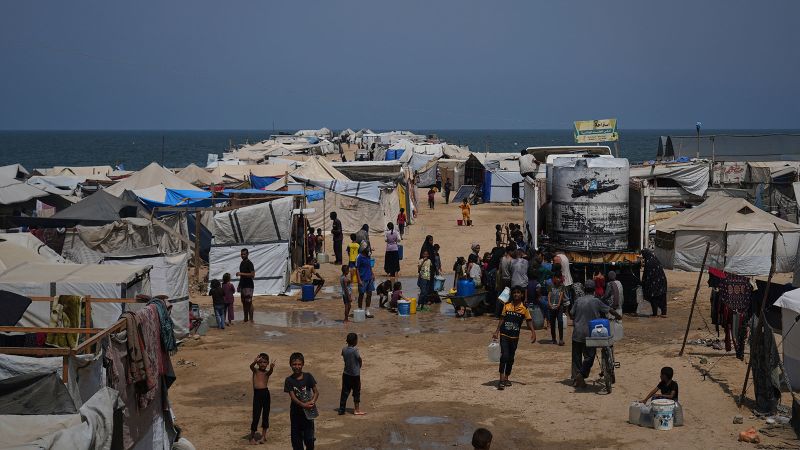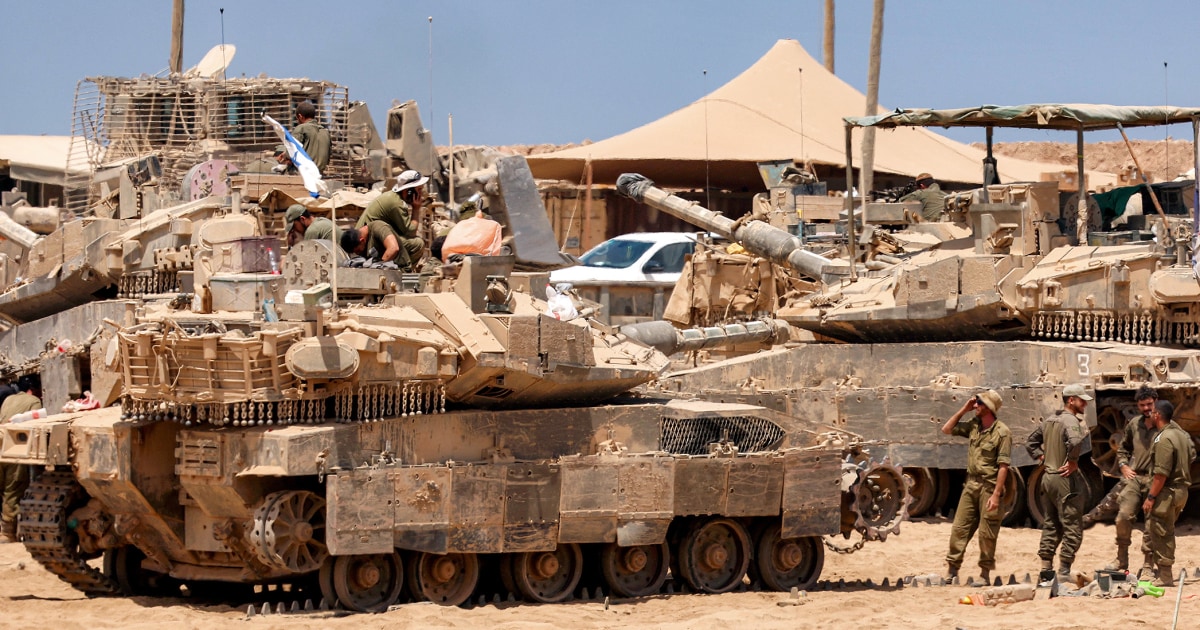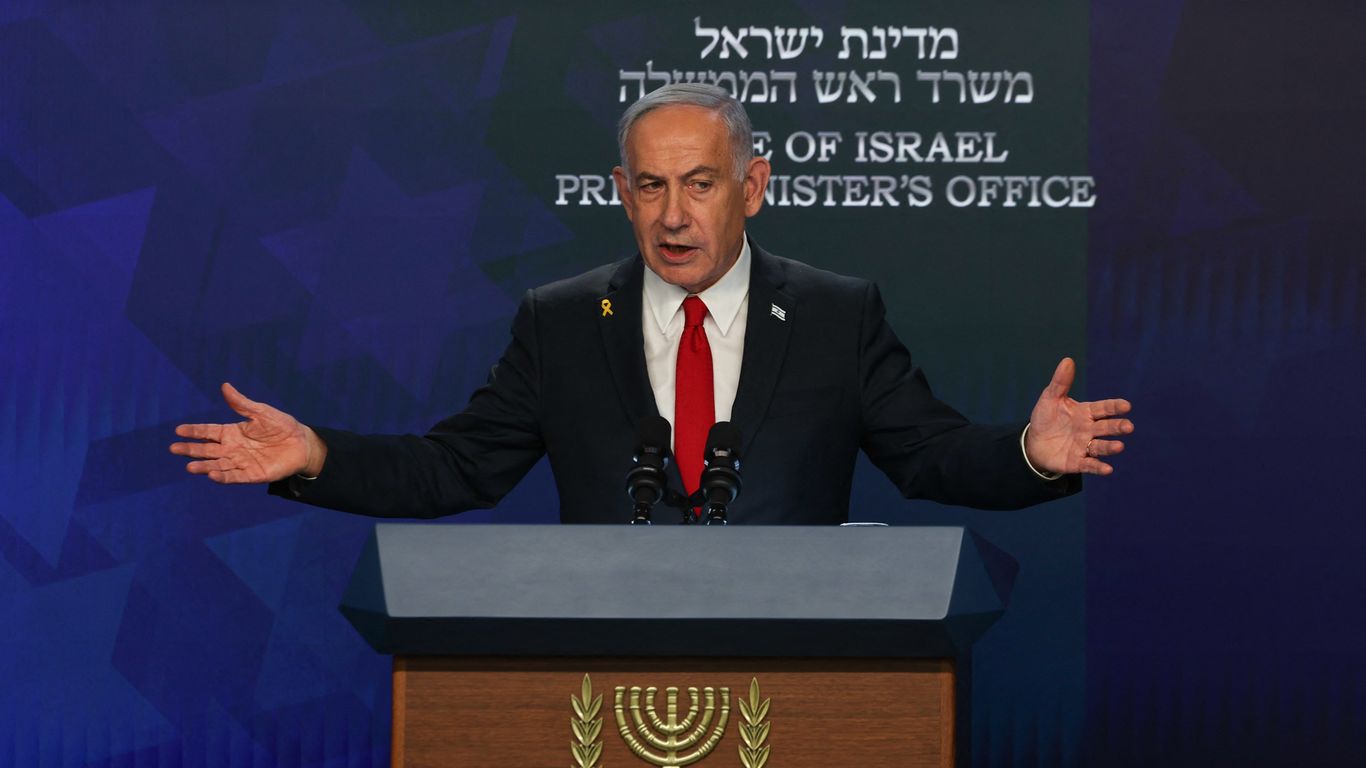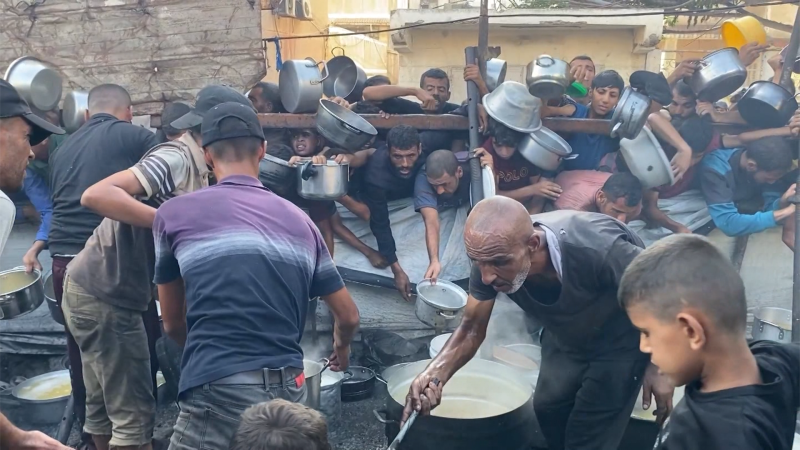Israeli People Call for End to Ongoing Conflict with Gaza

Introduction
The ongoing conflict between Israel and Gaza has sparked nationwide protests and a strike in Israel. Despite polls showing that a vast majority of Israelis want the fighting to stop, the government plans to expand it. This has led to tension and frustration among the Israeli people, who are demanding an end to the war.
Impact on Israelis
The war has had a significant impact on the daily lives of Israelis, with many living in constant fear of rocket attacks from Gaza. Schools and businesses have been forced to close, and the country's economy has taken a hit. The constant barrage of sirens and explosions has also taken a toll on the mental health of the Israeli people.
Government's Response
The Israeli government's decision to expand the war has been met with criticism and opposition from its citizens. Many feel that the government is not prioritizing the safety and well-being of its people. The ongoing protests and strike are a clear indication that the Israeli people are fed up with the constant violence and are calling for an immediate end to the conflict.
About the People Mentioned
Israeli People
The Israeli people primarily consist of Jewish and Arab populations living in the State of Israel, a democratic nation established in 1948 in the Middle East. As of 2025, Israel's population exceeds 10 million, with approximately 78.5% identifying as Jewish and about 21.5% as Arabs, including Muslims, Christians, Druze, and other minorities[1][2]. The Jewish community is diverse, comprising descendants of immigrants from Europe, Asia, Africa, and the Americas, reflecting a rich cultural and ethnic mosaic[2]. Israeli society is marked by a high fertility rate relative to other developed countries, with Israeli women averaging about 2.85 children, contributing to steady population growth alongside immigration and increased life expectancy[3]. The population is relatively young, with over a quarter under 14 years old, although significant regional and religious demographic variations exist[3]. Israelis have played significant roles in various fields, notably in technology, agriculture, medicine, and defense, positioning Israel as a leader in innovation and a key player in Middle Eastern geopolitics. The influx of Jewish immigrants, especially from the former Soviet Union, has notably bolstered economic development. Israel's population growth and demographic changes have also influenced its social and political landscape amid ongoing regional conflicts and peace efforts[3][4]. Recent events, such as the 2024 October 7th attacks and subsequent war, have affected demographic trends, including a rare negative migration balance in 2024[4]. Despite challenges, Israel continues to grow and evolve, balancing its unique identity as a Jewish and democratic state with the complexities of a diverse society and regional dynamics[1][4][5]. Administratively, Israel is divided into six main districts, with significant populations in cities like Jerusalem, Tel Aviv, Haifa, and Beersheba, each reflecting the country's ethnic and religious diversity[6]. Overall, Israelis today represent a dynamic population shaped by history, migration, and contemporary geopolitical realities.
About the Organizations Mentioned
Israeli Government
The Israeli government is a parliamentary democracy, with the Prime Minister serving as the head of government in a multi-party system[1]. This system ensures a balance of power between the executive, legislative, and judicial branches, with the Knesset (the Israeli parliament) holding significant oversight authority over the government[1]. **History and Function**: The Israeli system has evolved since its establishment in 1948, with key milestones including the adoption of Basic Laws that outline the structure and powers of the government. The government is responsible for executing policies, managing the economy, and ensuring national security[1]. **Key Achievements**: Israel has been a leader in technology and innovation, with its government actively supporting startups and entrepreneurship through various initiatives. The government has also played a crucial role in advancing Israel's position in the global economy, fostering a business-friendly environment that attracts significant foreign investment[9]. **Current Status**: As of 2025, the Israeli government faces challenges related to judicial reform and political polarization. There are ongoing debates about the balance of power between the judiciary and the legislative branch, with some proposed reforms aimed at limiting judicial oversight[5]. Additionally, the government has been involved in controversial policies regarding the West Bank, including efforts to apply Israeli sovereignty over settlements[6]. **Notable Aspects**: The government's structure includes a system of checks and balances, with the Knesset able to exercise oversight through committees and votes of no confidence[1]. Notable figures in the current government include Itamar Ben Gvir, who holds significant influence over national security, and Bezalel Smotrich, who oversees policies related to Israeli settlements[3]. Despite these political challenges, Israel remains a vibrant democracy with strong institutions and a thriving economy[8].













